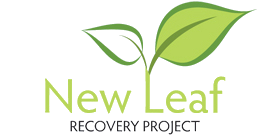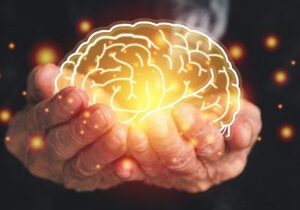EFT Explained

Tapping Through Addiction Recovery
Emotional freedom techniques, referred to as EFT and more commonly known as tapping, is a holistic approach to rehabilitation and addiction recovery.
Although traditional forms of rehabilitation remain the foundation of addiction recovery programmes, at New Leaf Recovery, we have utilised a range of holistic methods to aid our clients in long-term rehabilitation both with us and post-rehab, including EFT. Find out how this method of therapy has been a game-changer in addiction rehabilitation.
What Are Emotional Freedom Techniques (EFT)?
At its core, EFT is a gentle self-help technique that combines elements of ancient Chinese acupressure with modern psychology. It is essentially acupuncture, without the needles! Instead, this technique uses your fingertips to gently tap specific meridian points on your face or body whilst focusing on particular emotional or physical issues. Specific meridian points are highly receptive spots along a meridian pathway that can be easily accessed, believed to be part of your body’s energy routes.
The idea behind EFT is that negative emotions, physical pain or cravings are linked to disruptions in the body’s energy system. When tapping the meridian points on the body, this clears these blockages, allowing energy to flow freely again, promoting emotional balance. In short, EFT is about calming the nervous system and shifting the brain’s response to triggers.
At New Leaf, we believe that this is a vital tool in the rehabilitation toolbox, helping clients to work through their cravings and emotions during their rehabilitation and post-rehabilitation.
The Origins of EFT
The roots of EFT can be traced back to traditional Chinese medicine and practices of acupuncture and acupressure from thousands of years ago. In the 1980s, a psychologist named Dr. Roger Callahan developed a technique called Thought Field Therapy (TFT). He had discovered that the tapping on specific points of the body could alleviate his client’s severe water phobia.
Building further on this, Gary Craig, an ordained minister and Stanford University graduate, took this technique and simplified it in 1990 into what we now know as the Emotional Freedom Technique or EFT. Craig was able to streamline the tapping points, making it an easily accessible technique for everyone to learn. His aim in doing this was to empower individuals to take an active role in their emotional well-being.
At New Leaf Recovery, we utilise this method of rehabilitation in a similar way, encouraging clients to take their emotional well-being into their own hands and work through their pain or cravings to find positivity.
How Can EFT Help in Addiction Recovery?
The roots of addiction are often intertwined with emotional pain, past trauma, stress and overwhelming cravings. EFT can help bring a unique pathway to address these underlying factors:
- Healing Past Trauma: Many clients who struggle with addiction have struggled previously with some form of trauma. EFT is an opportunity to gently process these past traumas and reduce their emotional impact. This can then help to form a foundation for healthier coping mechanisms in the long term.
- Managing Emotions: At the core of addiction, you often see an inability to cope with difficult emotions. EFT is a practical tool for managing negative emotions such as fear, anxiety, anger or guilt, which can frequently trigger relapse. Processing emotions in a healthy way can help build emotional resilience.
- Reducing Cravings or Withdrawal Symptoms: EFT is incredibly effective at reducing the intensity of cravings for substances. The tapping on specific points whilst focusing on the craving can often lead to individuals feeling a noticeable reduction in their urge to use. It can also be helpful in alleviating uncomfortable withdrawal symptoms.
- Improving Self-Control & Restraint: As EFT helps to regulate the nervous system and reduce emotional reactivity, it can enhance an individual’s sense of self-control, helping with their resistance to impulsive urges.
- Shifting Negative Beliefs: Another thought rooted in addiction is often the feeling of not being good enough. EFT can help to identify and reframe these beliefs, making way for positive self-acceptance and an improved self-image. These are crucial for long-term recovery.
At New Leaf Recovery, we work with all clients, helping them to embrace EFT and work through their addiction struggles with this self-help tool. Alongside our other therapies, clients can uncover the root of their addiction and find healthier techniques for overcoming it, including EFT.
EFT Post-Rehab and Beyond
One of the positives of EFT is that it is a therapy that can be accessible for everyone, tailored to the client’s post-rehab to help them in their long-term sobriety. Once you have learnt the basics of EFT, you can use it anywhere, making it an invaluable tool after rehabilitation.
When you have completed a course of addiction rehabilitation, stepping back into ‘normal’ life can be difficult. The world is surrounded by stress, triggers, and challenging emotions for everyone; they simply cannot be avoided. Having an understanding of EFT and being able to use it can help with these aspects of post-rehab life. It can help you to:
- Self-Regulate: Quickly address the moments of anxiety, stress or cravings before they escalate into more difficult situations.
- Maintain a Healthy Emotional Balance: Continuously work on achieving a healthy emotional well-being, reinforcing the positive changes you have made.
- Process Daily Challenges: Navigate emotional upset and frustrations without resorting to old coping mechanisms.
- Prevent Relapse: Having a proactive strategy to manage potential triggers and high-risk situations prevents relapse.
At New Leaf Recovery, we include Emotional Freedom Techniques as part of our rehabilitation programme, encouraging all clients to get involved in finding new ways to cope with their emotions and stress.
Taking a Step Forward in Addiction Recovery with New Leaf Recovery
It is key to note that EFT is not a cure for addiction or the challenges of daily life, but it is a powerful therapy technique that can significantly enhance your addiction recovery journey. It encourages you to take a proactive role in healing and provides a way to process emotions and the psychological aspects of addiction.
Here at New Leaf Recovery, we are here to support everyone struggling with a form of addiction, whether it be illegal drugs, substances, alcohol or behaviour struggles. You do not have to face withdrawal or rehabilitation alone. Our compassionate team supports your journey through detoxification and rehabilitation, walking you through effective therapies like EFT or art therapy.
Our aim is to help all clients turn over a new leaf and build a healthier, addiction-free life. If you need support in your journey or would like advice for a loved one, speak to our team today. We provide 24/7 care and support to help everyone on their journey to long-lasting sobriety.
Receive a Free Call Back
"*" indicates required fields
A Complete Recovery Journey. From your initial enquiry, all the way through treatment and beyond with ongoing support, New Leaf Recovery are there to guide and support you.
New Leaf offers a complete journey of treatment, from initial detoxification and rehabilitation to ongoing support, including aftercare, family support, and beyond into long-term recovery.
Getting the right accommodation enables us to provide the right backdrop for our recovery methods. Any form of rehabilitation needs to happen in a safe, comfortable, secure and friendly environment.
Receive a Free Call Back
"*" indicates required fields










